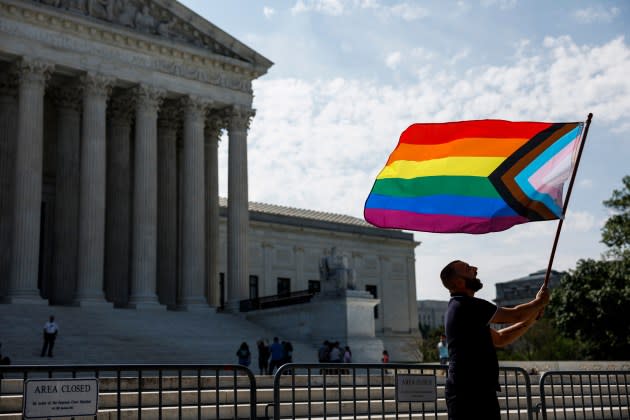Supreme Court to Decide Whether Gender-Affirming Care Bans Are Constitutional

The Supreme Court has agreed to hear a case challenging the legality of state-level bans on access to gender-affirming care for minors. The case, which will not be argued before the court until the fall, will have wide-reaching ramifications for the civil and medical freedoms of transgender individuals in the United States.
United States v. Skrmetti challenges a Tennessee law that bans access to gender-affirming care, including hormone treatments and puberty blockers, for minors. In April of last year, the Justice Department sued Tennessee, arguing that the legislation violates the 14th Amendment’s equal protection clause.
“The right to consider your health and medically-approved treatment options with your family and doctors is a right that everyone should have, including transgender children, who are especially vulnerable to serious risks of depression, anxiety and suicide,” Assistant U.S. Attorney General Kristen Clarke said at the time. “The Civil Rights Division of the Justice Department will continue to aggressively challenge all forms of discrimination and unlawful barriers faced by the LGBTQI+ community.”
The law was allowed to go into effect in July despite multiple legal challenges. According to the Human Rights Council (HRC), 25 states have passed bans on gender-affirming care, with 39 percent of the United States’ transgender youth population now living under laws restricting their access to medical care.
As previously reported by Rolling Stone, the restrictions — which are heavily concentrated in southern states like Tennessee — are forcing families to travel out of state to seek medically guided care for trans youth and adolescents, or leave the state outright.
“It’s not just that we’d have to drive across state lines,” one Tennessee parent previously told Rolling Stone. “It’s that we are choosing care for our child — with the guidance of medical professionals — but when we come back, we know we’re coming back to a state that has legislated that our child shouldn’t exist.”
More from Rolling Stone
Supreme Court Greenlights Corrupt Gratuities for Politicians
MrBeast Defends BFF Ava Kris Tyson Against Far-Right Transphobic Attacks
Best of Rolling Stone

